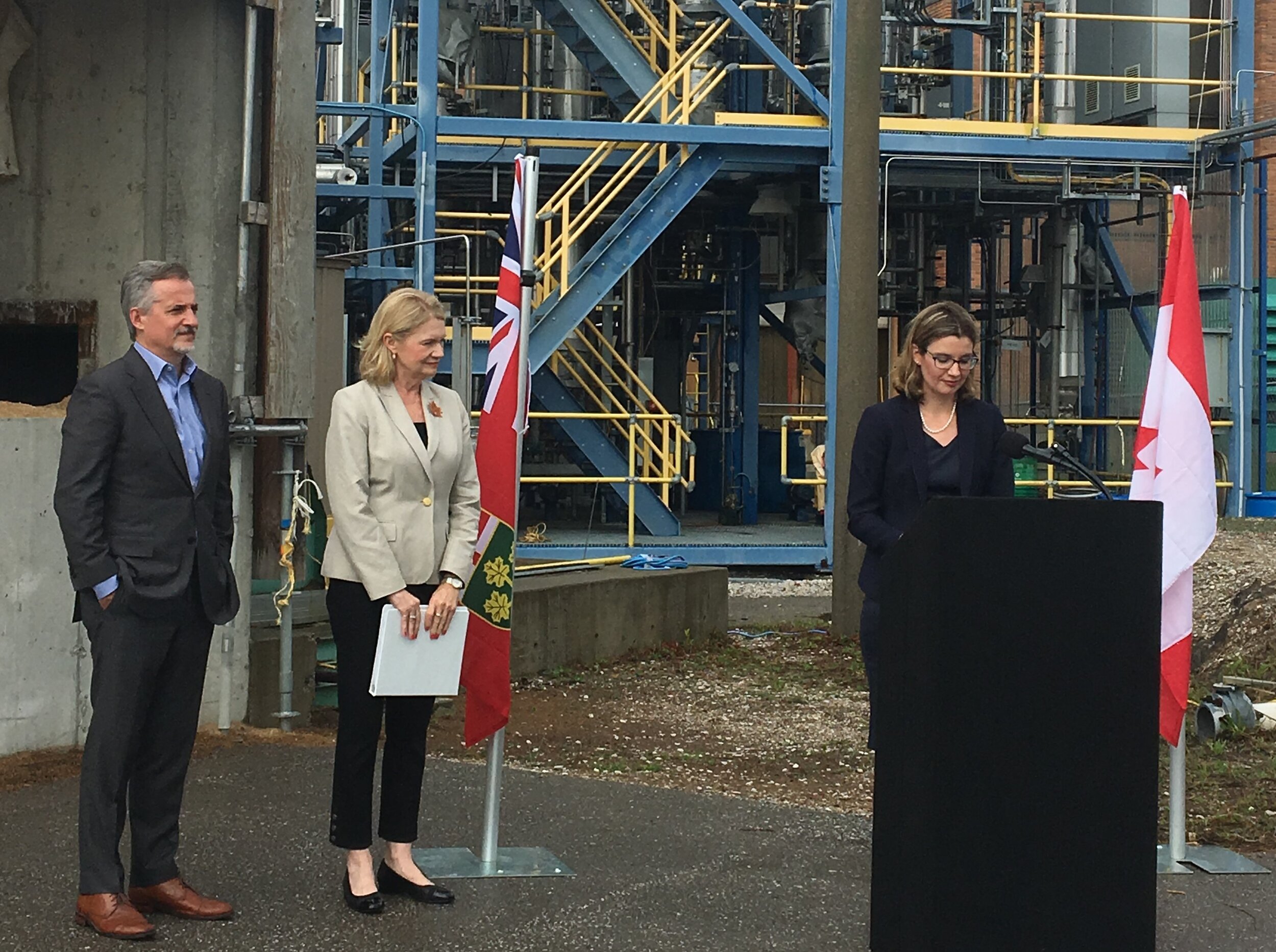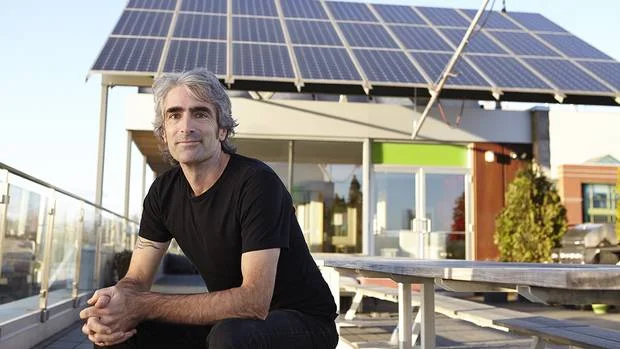RESERVE, La. – Woodland Biofuels (the “Company”), Inc., announced a planned $1.35 billion investment at the Port of South Louisiana to establish the world’s largest carbon negative renewable natural gas plant / ultra-green hydrogen facility. Phase 1 of this project is the largest carbon negative renewable natural gas facility globally. Phase 2 is the world’s largest carbon negative ultra-green hydrogen plant. The Toronto-based company will utilize waste biomass to produce sustainable biofuel used in transportation, heating and electricity generation.
The Clean50 annually offers recognition to Canada’s leaders in sustainability in 16 diverse categories that transcend numerous industries, academia, different levels of government, thought leaders and advocates.
Toronto-Waterloo now 7th in the world behind only Silicon Valley, New York City, London, Singapore,Hong Kong, and Beijing
Woodland Biofuels was named one of the Future 50 Fastest-Growing Sustainable Companies in Canada. Selected from a pool of 5,115 Canadian companies published by Corporate Knights to highlight emerging Canadian companies whose business activities align with the transition to a clean economy.
As the world moves to a lower-carbon future, Woodland Biofuels is taking a second look at what it wants to make at a biochemical plant it’s planning for Sarnia.
Tom Rand, managing partner of ArcTern Ventures, discusses the federal government's Clean Fuel Standard, which is meant to help meet Canada's emissions targets set for 2030.
Dianne Saxe's Green Economy Heroes Podcast
Episode #27: Coming soon: the world’s cheapest liquid transportation fuel, made from construction waste
A federal government investment is expected to enable Woodland Biofuels to build its first commercial plant, potentially creating over 300 new jobs in Sarnia
The federal government announced investment into two projects at Woodland Biofuels' Sarnia operation, which aim to reduce automotive fuel emissions and create over 300 local jobs.
Inside a gleaming glass tower in downtown Toronto, the Parametric Human Project is building a virtual human body that can be used for medical testing instead of lab animals. Down the hall, a startup called Woodland Biofuels is developing cellulosic ethanol from forestry and farm waste.
Trump’s decision is deeply misguided and the exact opposite of what is needed to create a sustainable global economy. But it is no cause for Canada’s clean technology companies to hit the panic button — in fact, it might be just the opportunity they need.
For companies that focus strategically on the right products and services, the market for Canadians to export clean technology, or cleantech, to China, still has room to grow, says Tom Rand, managing partner of ArcTern Ventures, a Toronto firm that invests in cleantech startups.
If your investments were a person, who would they be? Perhaps a bespectacled accountant tallying pennies in a cubicle. Or maybe an exhausted analyst with shoulders hunched over an Excel spreadsheet. If you’re like many Canadians, you aspire to be a different kind of investment: one who stays late at the office, but also volunteers on the weekends.
E-Squared featuring Tom Rand, Senior Advisor, MaRS Cleantech and Ken Green, Senior Director, Centre for Natural Resources, Fraser Institute
Right now, politicians from around the globe are meeting in Paris to figure out the next steps in reducing climate change.But a number of Canadian entrepreneurs have spent years sussing out technologies that may help us get to a future of cleaner power.
Canada’s emerging leaders across the clean energy spectrum are ready to play big. Morgan Solar will produce solar energy for less than 5c/kwh in the oil-rich Mideast. Woodland Biofuels can produce renewable transport fuel from wood and agricultural waste for less than the gasoline it replaces.
Clean tech is Canada’s fastest-growing industry and perhaps its best-kept secret. According to Ottawa-based Analytica Advisors, which tracks and benchmarks the space, clean tech currently consists of about 700 companies in Canada, employing 41,000 people and generating $11.3-billion annually. Most of these companies are exporters, with 52% of sales outside of Canada and 42% outside of the U.S.
Tom Rand talks about what can be done politically to move forward on addressing climate change
"Our Government recognizes that innovation holds the key to long-term economic stability for the people, communities and businesses of Ontario," said MP Davidson. "Our investment in Woodland Biofuels will lead to opportunities for job creation, growth and long-term prosperity in Ontario, and will strengthen Canada's position as a global leader in clean energy."
Woodland Biofuels Inc. is receiving a contribution to operate a plant that will produce low-costbiofuel from waste. Patricia Davidson, Member of Parliament for Sarnia–Lambton, announced the funding today on behalf of the Honourable Gary Goodyear, Minister of State for the Federal Economic Development Agency for Southern Ontario (FedDev Ontario).
Greg Nuttall likes to take visitors to the very top of his 10,000-square-foot chemical plant, tucked behind a secluded research building outside Sarnia, Ont. He runs up a couple flights of metal stairs, which give way to three sets of ladders woven into what looks like an outsized, freshly assembled Erector set rising from the snow
"The MaRS Cleantech fund seeks technologies with the potential to revolutionize the energy sector," says Tom Rand, co-managing director of the Fund. "Woodland Biofuels is on track to become the first company to profitably make renewable fuels from non-food sources without requiring any form of subsidy. That's the kind of game-changer we target."
Woodland Biofuels Inc. has begun commissioning its new demonstration cellulosic ethanol facility in Sarnia, Ontario. “We’re in the preliminary stages of commissioning,” CEO Greg Nuttall told Ethanol Producer Magazine. “We’re testing each piece of equipment. Within a couple of weeks we will be ready to move to staged startup.” Located at the Bio Industrial Innovation Centre, the facility will be capable of handling 7.2 metric tons per day of wood waste, or about 2,400 metric tons per year.
Woodland Biofuels’ $12-million Sarnia demonstration plant is up and could be producing ethanol from wood waste by the end of the year, says president Greg Nuttall.
The newly-built facility is located at the Western University Research Park’s Bioindustrial Innovation Centre in Sarnia.
Woodland Biofuels, a leading cellulosic ethanol company, today announced that William B. White has joined Woodland's senior management team as Chief Operating Officer. Mr. White was formerly the President of DuPont Canada (1,000 employees, $1 billionrevenue) and had an over 30 year career with the global DuPont company in Operations (Director, Global Operations), Marketing, Engineering and leadership of global business units. A long time champion of sustainability, he has recently been working extensively with developing businesses particularly in cleantech as a member of the board of MaRS, the advisory board of the Sustainable Chemistry Alliance, and in consulting.
Woodland Biofuels announced today the closing of a common equity investment in Woodland to help build a groundbreaking demonstration plant that will efficiently produce cellulosic ethanol from renewable wastes.
Woodland Biofuels, a leading cellulosic ethanol company, has made the 2011 GoingGreen Top 200 for being one of the most promising private greentech companies on the planet. Inclusion in the GoingGreen Global 200 signifies industry leadership and a game-changing technology that is likely to disrupt existing markets and entrenched players. Woodland was selected by the AlwaysOn editorial team and industry experts spanning the globe based on a set of five criteria: innovation, market potential, commercialization, stakeholder value, and media buzz.
The New Entrepreneurs paints a heartening picture of what the green economy could look like. At the same time, it introduces us to dozens of clean technology innovations and, behind them, the Canadian risk-takers who are passionately trying to drive change in a resource-driven country that likes the way things are – even if it can’t last.
Ontario is investing $4 million through the Innovation Demonstration Fund (IDF) to help Woodland Biofuels Inc. and its partners build a groundbreaking demonstration plant that will efficiently produce cellulosic ethanol from renewable wastes.
Ontario is supporting new clean energy technology and creating jobs as part of its Open Ontario Plan.Through the Innovation Demonstration Fund the province is helping Woodland Biofuels Inc. build a pilot plant at the Bioindustrial Innovation Centre in Sarnia, Ontario. The plant will help the company improve its ability to produce cellulosic ethanol. Using low-cost, locally available waste materials, such as wood waste, this cleaner fuel can be mixed with gasoline for use in automobiles.































